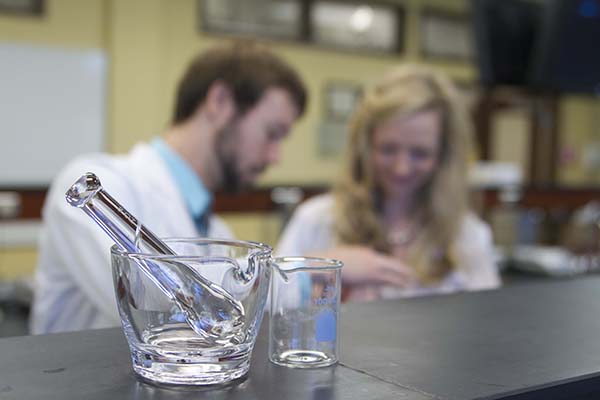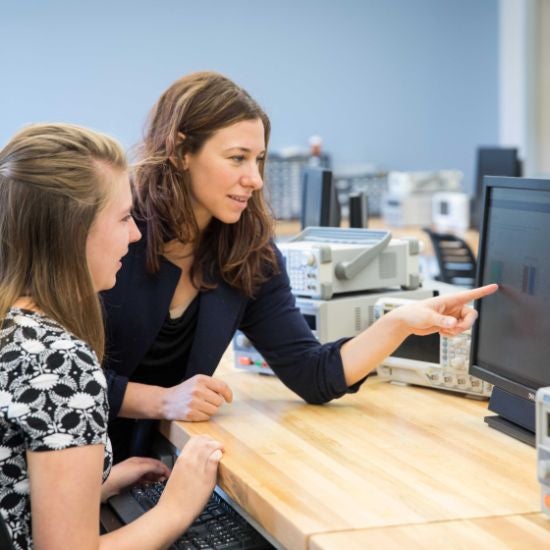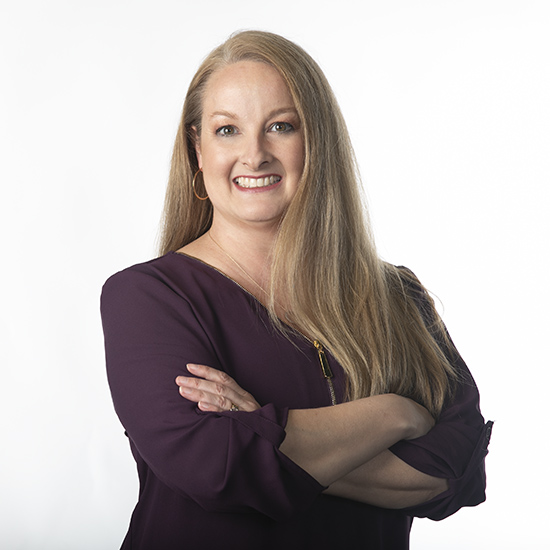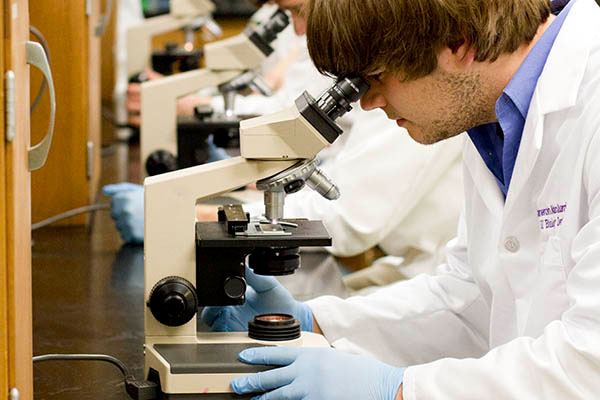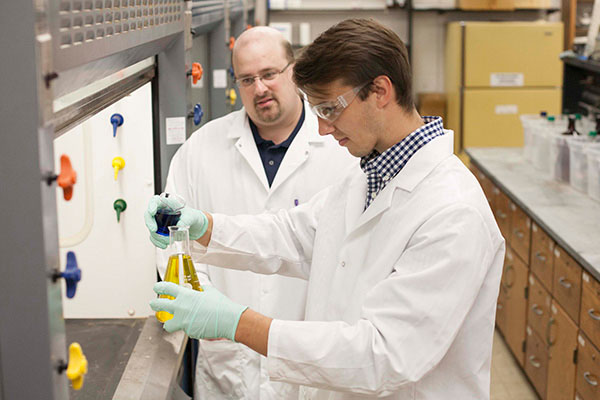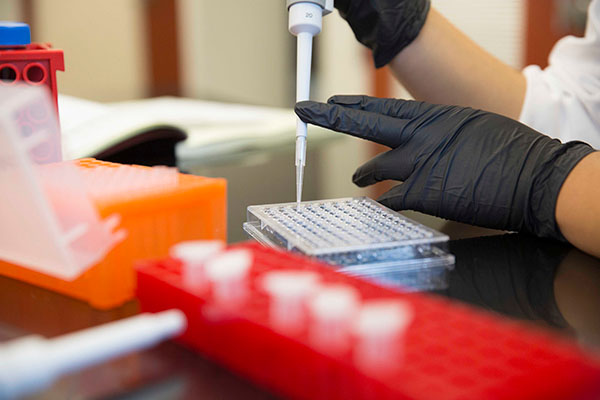Program Overview
If you’re looking for versatility in the healthcare field, look no further. As a pharmacist, you’ll help others live healthier lives. You can research complex drugs that could one day change the world. So put yourself on the path to a career that gives back.
We can successfully transition you into the Doctor of Pharmacy program of your choice, so that you’ll be a sought-after professional in the field. Luckily for you, we provide several ways to get there. Our Health Professions Advisory Committee are well-respected professionals and educators on hand to assist you with every step of planning. Even if you're not sure which pharmacy school you want to attend, our committee is available to help you tailor a journey with a major that best reflects your interests and goals.
If you intend to attend Lipscomb’s College of Pharmacy, you may qualify based on your high school GPA for Lipscomb's Pharmacy Early Assurance in two ways. The most popular pathway allows students to enter the Doctor of Pharmacy Program after 3 years of undergraduate pre-pharmacy coursework in either Health Sciences or Biology. Then the first year of the PharmD program serves as a dual credit year to satisfy the remaining credits needed for the bachelor's degree. The second way students can participate is by entering the Doctor of Pharmacy program after 61 undergraduate course credit hours. This pathway forgoes a bachelor's degree entirely. With either of these paths, you’ll build the foundation necessary to prepare you for Lipscomb’s Doctor of Pharmacy program.
In either pathway, as a Lipscomb pre-pharmacy student, you’ll gain access to our seasoned faculty and student pharmacists who have already begun their journey. You'll have optional membership in the American Pharmacist Association Academy of Student Pharmacists even as an undergraduate. And you will get personal, step-by-step guidance about the application process and pharmacy career pathways. You'll develop advanced critical thinking, problem-solving, and communication skills. You will be highly equipped to continue your education in the multifaceted profession of pharmacy.
| Career ExplorationVideo CenterDiscover your passion and take courses to support your health care career goals. The Career Exploration Center showcases a selection of videos to help students identify their strengths, align their skills with industry needs, and find suitable career paths. The center also answers any questions you may have, helping navigate your career journey with confidence. Resources are available to explore different pharmacy specialties and discover which path suits you best:
|
Pathways for Pharmacy Admission
Select a Track | Hours Needed | Time to complete | Major | Advising |
Fast Track | 61 sem. hours | 2 years | None (pre-pharm) | Chemistry or Health Sciences |
3+1 Track | Varies by degree | 3 years undergraduate + 1 year Pharm.D. | Health Science, Biology, or Chemistry with Pre-Pharm Emphasis | Health Science, Biology, Chemistry depts. depending on major |
4+4 Track | 126 sem. hours | 4 years | Any major | Department of major |
Courses
Lipscomb Undergraduate Pre-Pharmacy Advising
Regardless of which pathway you select, every student must complete the following required prerequisites prior to enrollment. Most students will submit their application to pharmacy school 8 to 12 months prior to their desired entry term while a portion of their courses are still in progress.
Required Prerequisite Courses
|
Course |
Credit Hours |
|
General Chemistry I & II with labs |
8 |
|
Organic Chemistry I & II with labs |
8 |
|
Biology with labs |
8 |
|
Microbiology with lab |
4 |
|
College Algebra |
3 |
|
Statistics |
3 |
|
English Composition I & II (Satisfied by Lipscomb Seminar and English Composition at LU) |
6 |
|
Speech Communication |
3 |
|
Humanities and Social Science Electives (Literature, History, Psychology, Sociology, Foreign Lang, etc.) |
12 |
|
Additional Electives |
8 |
|
Total Hours |
61 |
Sample Pre-Pharmacy Course Schedule
For students prepared to start with Math 1314 Calculus I:
- Lipscomb Seminar (3)
- BI 1073 - The Story of Jesus
- CM 1113 - General Chemistry I
- CM 1211 - General Chemistry Laboratory I
- MA 1314 - Calculus I
- General Ed. Course/Elective (3)
- BI 1083 - The Story of the Church
- CM 1123 - General Chemistry II
- CM 1221 - General Chemistry Laboratory II
- EN 1313 - University Writing
- BY 1134 - Principles of Biology: Cell and Genetics
- General Ed. Course/Elective (3)
OR
For students prepared to start with Math 1113 Algebra:
Fall (16 Hours)
-
Lipscomb Seminar
- BI 1073 - The Story of Jesus
- CM 1113 - General Chemistry I
- CM 1211 - General Chemistry Laboratory I
- MA 1113 - College Algebra
- Communication
- BI 1083 - The Story of the Church
- CM 1123 - General Chemistry II
- CM 1221 - General Chemistry Laboratory II
- EN 1313 - University Writing
- BY 1134 - Principles of Biology: Cell and Genetics
- MA 1123 - Trigonometry and Analytic Geometry
OR
For students prepared to start with Math 1115 Pre-Calculus:
Fall (15 Hours)
- Lipscomb Seminar
- BI 1073 - The Story of Jesus
- CM 1113 - General Chemistry I
- CM 1211 - General Chemistry Laboratory I
- Math 1115
- BI 1083 - The Story of the Church
- CM 1123 - General Chemistry II
- CM 1221 - General Chemistry Laboratory II
- EN 1313 - University Writing
- BY 1134 - Principles of Biology: Cell and Genetics
- CO 1003 - Introduction to Communication
Note:
Please visit our website at pharmacy.lipscomb.edu for the most up to date information regarding the College of Pharmacy. Students may also contact the College of Pharmacy by pharmacy [at] lipscomb.edu (email).
Early Assurance
Pharmacy Early Assurance provides you a conditional seat in the Lipscomb University College of Pharmacy Pharm.D. program based on your undergraduate application. You must complete all your prerequisites, keep your grades up, apply through PharmCAS, and have a successful interview with the College of Pharmacy admissions committee to finalize your admission status.
Our Faculty
Career Paths
Pharmacy Technicians
Pharmacy technicians help pharmacists dispense prescription medication to customers or health professionals.
Medical Scientists
Medical scientists conduct research aimed at improving overall human health. They often use clinical trials and other investigative methods to reach their findings.
Pharmacists
Pharmacists dispense prescription medications to patients and offer expertise in the safe use of prescriptions. They also may conduct health and wellness screenings, provide immunizations, oversee the medications given to patients, and provide advice on healthy lifestyles.
